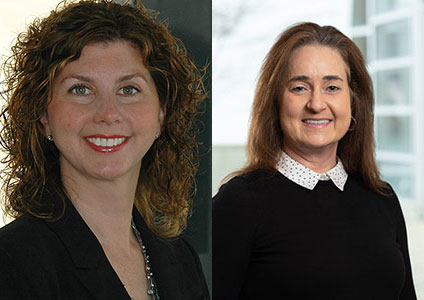The Case Comprehensive Cancer Center (Case CCC) recently announced it received a $2 million grant through the Alliance for Equity in Cancer Care (the Alliance), an initiative funded by the Merck Foundation (the Foundation) and designed to make cancer care more equitable in the United States by helping patients living in underserved communities receive timely access to high-quality, culturally responsive care.
“This is a very transformative initiative,” said Stan Gerson, dean of Case Western Reserve University School of Medicine and acting director of the Case CCC. “The funding provided by this award will help Case Comprehensive Cancer Center and our partnering organizations address the needs of our region’s most medically vulnerable by creating a multi-level intervention model that promotes delivery of cancer-care services to ensure earlier detection, earlier-stage diagnoses, informed cancer treatment decision-making and patient-tailored treatment.”
Nearly 40% of Americans will be diagnosed with cancer in their lifetime, according to the National Cancer Institute. Members of racial and ethnic minority groups, those living in rural areas, low-income individuals and the uninsured are disproportionately affected by cancer, yet often have limited access to cancer screenings, care and treatment.
In 2019, Cleveland proper was ranked in U.S. Census data as the poorest “big city” in the country and, based on the Ohio Cancer Incidence Surveillance System, is observed to have among the sharpest racial/ethnic disparities in lung, prostate, breast and colorectal cancer mortality in Northeast Ohio.
Data from the Centers for Disease Control and Prevention’s Behavioral Risk Factor Surveillance System study reveals far lower-than-recommended mammogram and colorectal cancer screening rates throughout the Case CCC’s 15-county service area.
Through the Alliance, a new collaborative effort has been forged by Case CCC, Care Alliance Health Center, El Centro, University Hospitals Accountable Care Organization, University Hospitals Seidman Cancer Center and The Gathering Place, titled PARTNERS: Promoting Access, Resources and Treatment through Novel and Equitable Solutions for Cancer Care.

PARTNERS, led by Erika Trapl, associate director of community outreach and engagement, and Jennifer Cullen, associate director of cancer population sciences—both members of Case CCC and faculty at Case Western Reserve School of Medicine—will address cancer disparities in access to screening and fragmentation of care for cancer patients. The project will implement patient navigation to improve access to cancer screening, timely follow-up care for suspicious findings and, ultimately, timely cancer treatments and psychosocial cancer support.
PARTNERS aims to serve those experiencing the greatest cancer burden in the Case CCC and those who are in greatest need for intervention to improve equity in cancer care: men and women 45 years and older who are African American or Latino/Latina and /or individuals with incomes near or at the poverty level.
“The severity of the need to take action on advancing equity in cancer care cannot be overstated and will not be overlooked,” said Carmen Villar, CEO of the Merck Foundation. “We must move with urgency and work together to provide all people living with cancer access to high-quality care and treatment. The creation of the Alliance is an important step toward ensuring social determinants of health no longer factor into an individual’s ability to receive vital healthcare.”
In addition to Case CCC, the Alliance program grantees include: Boston Medical Center; Conquer Cancer®, the ASCO Foundation; Mary Bird Perkins Cancer Center; Memorial Sloan Kettering Cancer Center; RWJ Barnabas Health; and University of Kentucky Markey Cancer Center. The Foundation is also supporting a National Program Office at Virginia Commonwealth University (VCU) Massey Cancer Center, in partnership with the VCU Center on Health Disparities, which will assist Alliance program grantees in building partnerships with community-based organizations and provide technical assistance to support their programs.
The Alliance program grantees will meet regularly with the National Program Office to discuss lessons learned, share insights and explore tangible actions to support the delivery of equitable cancer care within their local communities and beyond. The National Program Office will evaluate the effectiveness of Alliance programs and identify and promote best practices that can enhance the delivery of cancer care in the United States.
For more information, contact Bill Lubinger at william.lubinger@case.edu.

